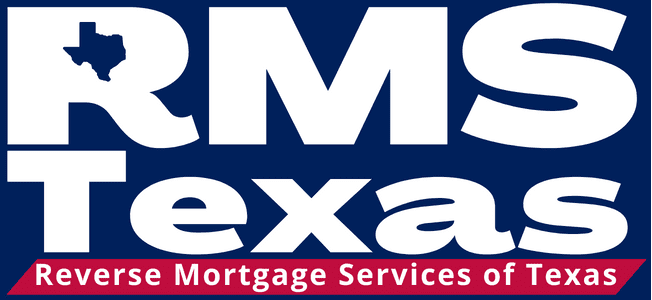What is a Reverse Mortgage?
A reverse mortgage is a loan designed for homeowners who are 62 years or older, enabling them to convert their home equity into cash. This allows them to remain in their home without the need to sell it or make any monthly payments towards the loan.
Repayment of the loan is not required until the homeowner either relocates, passes away, or decides to sell the property. At this time, the loan is settled using the proceeds from the property's sale. Heirs may also choose to refinance the property to pay off the loan.
The ability to stay in ones home without a monthly mortgage payment offers the flexibility to use the acquired funds for various purposes. Though you are not limited in how you utilize the funds, some options include: covering significant expenses, clearing debts, supplementing retirement income, or simply enhancing the enjoyment of retirement.
Additionally, reverse mortgages contribute to the financial stability of seniors, aiding them in "age in place" for as long as possible during their retirement years.
Who Qualifies for a Reverse Mortgage?
To be eligible for a reverse mortgage, applicants generally need to be at least 62 years of age and either fully own their home or have significant equity in it.
Additional criteria must also be met to secure a reverse mortgage loan:
- Applicants must live in the home as their primary residence and not utilize it as an investment property.
- Applicants must show they can handle ongoing financial responsibilities, including property taxes and insurance premiums.
- It is mandatory for all borrowers to undergo counseling from an independent, third-party counselor before obtaining a reverse mortgage.
- The loan amount one can receive is influenced by factors such as the borrower's age, the amount of equity in the home, and market interest rates.
Frequently Asked Questions
How Is a Reverse Mortgage Different from a Traditional Mortgage?
Unlike a traditional mortgage or a home equity loan, with a reverse mortgage you aren’t required to make monthly payments as long as you remain in your home. Instead, the lender pays you, either in a lump sum, monthly payments, or a line of credit—essentially turning your home equity into spendable cash.
With a standard mortgage, you're gradually building equity by making payments each month. Home equity loans or lines of credit also demand regular payments and can threaten your home if you fall behind. On the other hand, a reverse mortgage allows you to access your home’s value without the immediate pressure of repayment, making it a financial tool tailored for those who wish to stay put while maximizing their retirement liquidity.
Protections Offered by HECM Reverse Mortgages
A key benefit of choosing a Home Equity Conversion Mortgage (HECM) is the set of protections built into these loans. Backed by the Federal Housing Administration (FHA), HECMs come with important safeguards for homeowners:
Non-Recourse Guarantee: You or your heirs will never owe more on the loan than the value of your home at the time of sale. If your home sells for less than the loan balance, FHA insurance covers the difference.
Guaranteed Access to Funds: The availability of your loan proceeds is protected—even if your lender goes out of business, FHA insurance ensures your access to the money.
No Forced Repayment While You Live in the Home: As long as you continue to meet the loan requirements—such as living in the home as your primary residence and keeping up with property taxes and insurance—you won’t be required to make payments on the loan.
These built-in features provide peace of mind for retirees, helping ensure that using your home equity doesn’t put your family’s financial security at risk.
Common Misconceptions About Reverse Mortgages
One of the most persistent misunderstandings about reverse mortgages is the belief that the lender takes over ownership of your home. In reality, that's not the case—you continue to hold the title and maintain full ownership for as long as you live in the home. You’re also free to sell your property whenever you wish.
It’s important to note, however, that homeowners remain responsible for paying property taxes, securing homeowner’s insurance, and keeping up with routine maintenance. The reverse mortgage only requires repayment once you no longer reside in the home, whether due to moving, selling, or passing away. This flexibility is what makes reverse mortgages a practical option for many seniors, allowing them to maintain control and peace of mind while accessing their home’s equity.
Advantages of a Reverse Mortgage in Texas
Choosing a reverse mortgage in Texas comes with a variety of practical benefits tailored to support homeowners during retirement.
Flexible Access to Home Equity: You’re able to access your home equity as a lump sum, through a line of credit, with monthly disbursements, or a blend of these, depending on what fits your needs best.
Financial Freedom Without Monthly Payments: You retain the right to remain in your home without worrying about monthly mortgage payments, unless you decide to make voluntary payments.
Versatile Use of Funds: The cash you receive can help fund medical expenses, home improvements, travel plans, daily living costs, or whatever best enhances your retirement lifestyle.
Estate Planning Support: Reverse mortgages can also offer an estate planning tool—providing liquidity without forcing a home sale, which allows for continued potential appreciation of your property.
Stay in the Home You Love: Texas regulations protect your ability to age in place and enjoy your home, offering peace of mind for you and your loved ones.
By leveraging these advantages, a reverse mortgage helps Texas homeowners transform equity into opportunity, supporting a stable, comfortable retirement.
